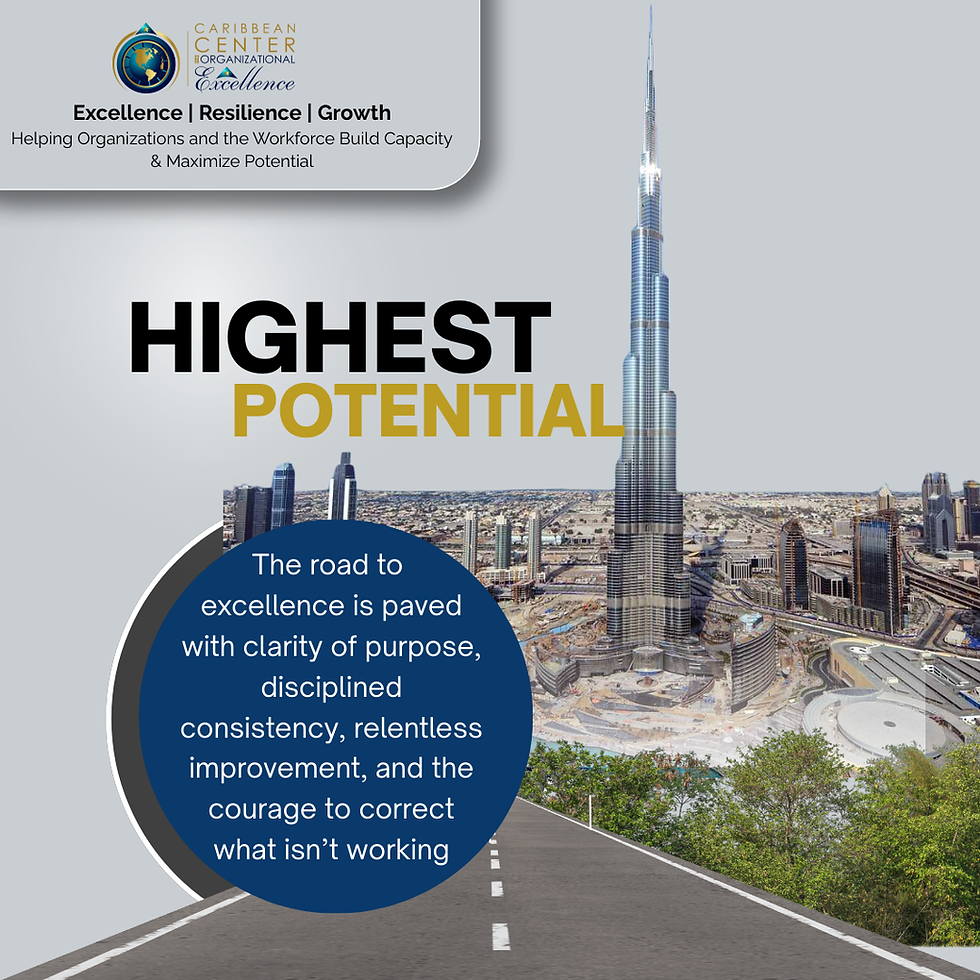Skilling Up The Skilled: A development action of immense importance
- Jerry DaC Blenman

- May 24, 2024
- 2 min read

Development across the globe is occurring at a very rapid rate. In light of this, one of the recurring contemplations that continue to capture my attention has been the extent to which organizations have been successfully paralleling competencies and skills to match change and emerging performance efficiencies.
Developing today's workforce to own knowledge, skills, and competencies that are mutually beneficial to them, the wider world of work, and the development goals of tomorrow is unquestionably crucial for institutional, national and international agendas.
In fact, rapid global change has been aggressively challenging the sufficiency of knowledge and skills to execute tomorrow’s ambitious agendas effectively today.
Let’s face it: development, which coincides with and runs parallel to competency building and skills enrichment, naturally offers opportunities for the best use of productive resources and the timely attainment of development goals. Acknowledging and understanding this in our quest for progress is important.
Competencies, in this context, represent explicit knowledge that enables successful task performance and execution. Skills, conversely, reflect applied competencies or what can be termed competencies in motion to achieve meaningful performance outcomes. Both are vital and should be prioritized as key development actions of immense importance.
Building skills-based organizations that are infused with relevant competencies is a transformational process that, quite frankly, cannot be ignored ~ JDaCB
I propose in the circumstance two possible perspectives for progressing the development of skill-based organizations:
Forecast long-range competencies and skills and activate them in the present as iterative processes – Understanding the requirements of tomorrow’s competencies and skills today, with a mindset to continuously skill up the skilled to meet emerging needs, can yield substantial benefits. Organizations adopting this approach are highly likely to benefit from employees who have been trained to see the future and function in the present with agility and precision.
Change your place in the queue to be among the change makers and setters – Quite naturally, organizations that drive change are not forced to adapt to change; alternatively, they are motivated by change and value it as a positional asset in the market. They understand that what competitors classify as a cost of change or expense to find relevance in the market is, in fact, an investment in development for them. Moreover, as drivers of change, their employees are better positioned to cultivate early competencies and skills that create further opportunities for institutional competitive advantage.
Developing today's workforce to possess knowledge, skills, and competencies that are mutually beneficial to them, the wider world of work, and the development goals of tomorrow is not an option; it is an imperative.
Check out our portfolio of Skills Enrichment Courses



Comments